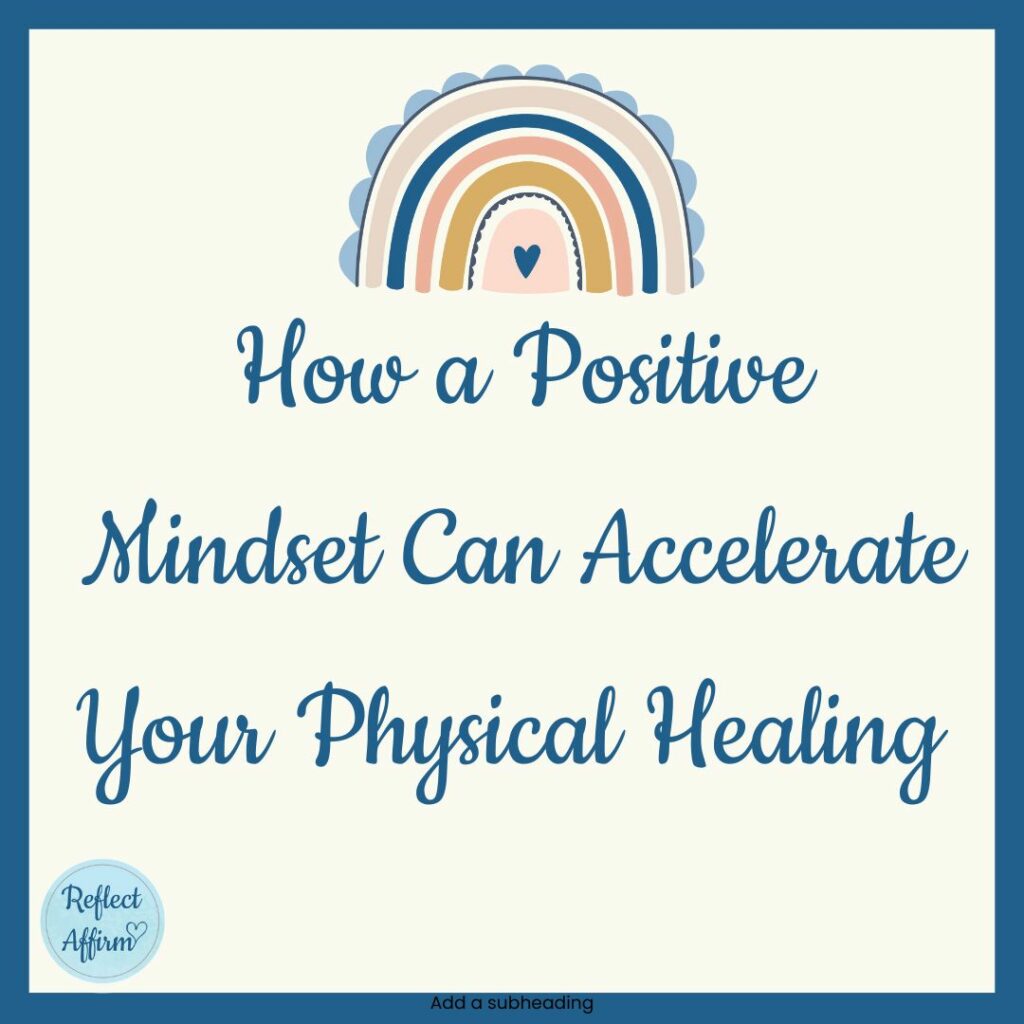
Imagine this: You’ve just been through a tough surgery or injury, and now you’re in recovery mode. Most people focus solely on medications, rest, and therapies, but what if I told you that your mindset could be the secret weapon to a quicker recovery? It might sound too good to be true, but science has shown that a positive attitude can actually help you heal faster.
The Power of Positivity: More Than Just a Mood Booster
We’ve all heard it before: “Stay positive!” It’s often said as a way to cheer someone up, but when it comes to healing, staying positive is much more than a simple pick-me-up. Research has demonstrated that people who maintain an optimistic outlook during recovery often experience reduced pain, faster healing times, and even lower levels of inflammation.
But how exactly does this work? Your mind and body are deeply connected. When you focus on positive thoughts, you reduce stress and anxiety—two major culprits that can slow down the healing process. In contrast, negative emotions like fear and worry trigger the release of stress hormones, which can impair your immune system and delay recovery. So, staying positive isn’t just about feeling good; it’s about giving your body the best possible chance to heal itself.

Positive Thinking Changes Your Brain Chemistry
Believe it or not, your thoughts can change the way your brain works. Studies have shown that positive emotions stimulate the release of “feel-good” neurotransmitters like dopamine and serotonin, which can enhance mood and boost your immune system. These chemicals play a critical role in regulating bodily functions that are essential to healing, such as sleep, pain perception, and even cell regeneration.
On the other hand, negative thoughts can create a cascade of harmful chemicals, including cortisol—a stress hormone known to suppress immune function. By shifting your mindset and focusing on positivity, you can literally help your body heal on a cellular level.
How to Cultivate a Positive Mindset During Recovery
Okay, so positivity is important—but how do you stay positive when you’re in pain or feeling overwhelmed by the healing process? Here are some practical tips to help you maintain a positive mindset, even on tough days:
- Practice Gratitude: Focus on the things you’re thankful for, no matter how small. Gratitude can shift your perspective and remind you that healing is a journey, not a race.
- Visualize Your Recovery: Imagine yourself healed, strong, and vibrant. Visualization techniques can help your mind and body align towards recovery.
- Affirmations: Simple positive affirmations like “I am healing every day” can have a powerful impact on your mindset. Speak these affirmations out loud to reinforce them in your brain.
- Surround Yourself with Positivity: Whether it’s through uplifting books, podcasts, or conversations with supportive friends, the positivity you absorb from others can rub off on you, making the recovery process a little easier.
Real-Life Stories: Positivity in Action
Let’s look at a couple of real-life examples that highlight the power of a positive mindset in the healing process.
- The Case of Mind Over Matter: In a study involving heart surgery patients, those who had a positive outlook before surgery were not only less likely to experience complications, but they also healed faster, with better quality of life than their more pessimistic counterparts. This wasn’t just a coincidence—doctors found that their positive mindset contributed to lower stress levels and better post-surgery outcomes.
- Athletes and Recovery: Elite athletes often use positive thinking to accelerate recovery from injuries. Many of them rely on visualization techniques to imagine themselves back in peak performance, which helps maintain motivation and speed up the healing process. It’s a strategy that has proven effective time and time again.
The Mind-Body Connection: Science Speaks
It’s easy to dismiss the mind-body connection as “woo-woo,” but the science backing it is solid. For instance, a study suggests that patients who engaged in mindfulness based stress reduction reported less pain and faster recovery times compared to those who didn’t. Mindfulness, a practice that centers on positive thinking and stress reduction, has been shown to have profound effects on the body’s ability to heal.
In another study, researchers found that patients who practiced meditation and mindfulness had less injuries on the field, most likely due to reduced stress. Clearly, the mind plays a key role in how the body heals.
Why It’s Not Just About Being “Happy”
A positive mindset doesn’t mean forcing yourself to be happy all the time—let’s be realistic. It’s about finding small moments of joy, shifting your focus away from negativity, and maintaining hope. There will be tough days in any recovery process, but focusing on what’s going well can make a world of difference.
In fact, psychologists suggest that emotional resilience—our ability to bounce back from negative experiences—is a critical factor in physical healing. This resilience is built not just on constant happiness but on the ability to maintain hope and perspective during difficult times.
How to Incorporate Positivity into Your Daily Routine
If you’re wondering how to start integrating more positivity into your healing process, here are some simple habits that can help:
- Start Your Day with Positivity: Begin each morning with a few minutes of meditation, focusing on gratitude or repeating healing affirmations.
- Limit Negative Influences: Whether it’s reducing time spent on social media or avoiding pessimistic conversations, be mindful of what’s feeding your thoughts.
- Engage in Physical Activities: Gentle exercises like yoga or stretching can release endorphins, boost your mood, and promote healing.
- Celebrate Small Wins: Did you feel a little stronger today than yesterday? Celebrate that! Every small step counts toward your overall recovery.

Positivity: A Simple, Yet Powerful Healing Tool
In conclusion, maintaining a positive mindset isn’t just about feeling better mentally—it’s a vital part of helping your body heal faster and more effectively. From changing your brain chemistry to reducing stress hormones, the power of positivity can have tangible effects on your physical well-being. So, next time you’re faced with a recovery challenge, remember that the most powerful tool you have might just be your mindset.
Your body is capable of amazing things, and with a positive mindset, you can accelerate your healing and achieve a stronger, healthier recovery.




